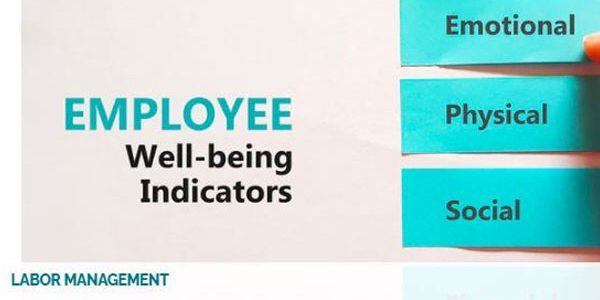It may contradict the jejune views of some social critics who view most employers as heartless, mustache-twirling Simon Legrees, but recent research shows that the physical health and mental well-being of employees will be the overwhelming concern of companies over the next six months.
The extent of this concern was on full display in a survey of nearly 1,100 C-suite executives, human resources professionals and in-house attorneys in a wide range of industries and organization sizes conducted late last year by the labor management law firm of Littler. In addition to COVID-19, the survey report also discusses employer actions regarding racial and political turmoil, and the potential for violence in the workplace.
The survey shows management thinking about the pandemic’s impact on employee well-being is both widespread and deeply considered—81% of respondents expressed concern about pandemic’s impact on employee mental health and well-being, and only 2% said they are not concerned.
Also, 75% are concerned about maintaining company culture, collaboration and employee loyalty under remote working conditions. “This is not surprising given the challenges employees face, which can run the gamut from childcare availability to feelings of isolation to Zoom fatigue,” Littler points out.
Only 5% of the executives said they are taking no action to address employee mental health and well-being during the pandemic. Most (76%) say they communicate frequently with employees and solicit feedback about their organization’s response to the pandemic. Other actions include deploying flexible work schedules (73%), mental health services or Employee Assistance Programs (68%) and virtual events to encourage connection and collaboration (55%).
On the other hand, only 23% of the executives say they provided additional training to managers, an oversight that Littler finds concerning.
Expansion of technology’s role in the workplace was noted by 88% of employers—including video conferencing software and collaboration tools—and the impact is expected to linger after the pandemic ends.
In fact, 55% are using technology-driven recruiting and hiring tools, such as artificial intelligence (AI) or analytical tools that can help screen resumes and open access to new talent pools. “That number jumped to 70% for the largest companies surveyed (those with over 10,000 employees), which may in part reflect the pressure these companies are under to review a flood of new job applications that often come with open positions in the current economic climate,” Littler explains.
Aaron Crews, Littler’s chief data analytics officer, offers, “The high level of interest in AI-powered tools is not surprising, as they offer great promise for a more efficient and effective recruiting and hiring process, However, companies must be mindful of the compliance risks—particularly that algorithms could inadvertently discriminate against a protected group—and ensure the integrity of the data, as these tools are only as good as the data used to train and feed them.”
Fewer employers report using technologies like mobile symptom screening that enhance workplace safety (28%). Littler says that this makes sense given the continued prevalence of remote work. Even fewer say they are turning to workforce automation (8%), although it is believed this percentage can be expected to rise as more companies recognize the many benefits of AI, robotics and automation tools, particularly in a post-pandemic workplace.
Scanning the horizon, the new Biden Administration is expected to act swiftly in addressing employment regulation issues and labor policy, which already was top of mind for the executives. Only 23% said they were not concerned at all about lawsuits alleging labor and employment violations related to COVID-19 and 21% stemming from potential workforce restructurings or reductions as the pandemic continues.
In this regard, Littler warns, “Our findings suggest that concerns about workforce restructurings and employment-related lawsuits may still present real longer-term obstacles.”
Source: https://www.mhlnews.com/labor-management/article/21152597/is-employee-wellbeing-your-focus















